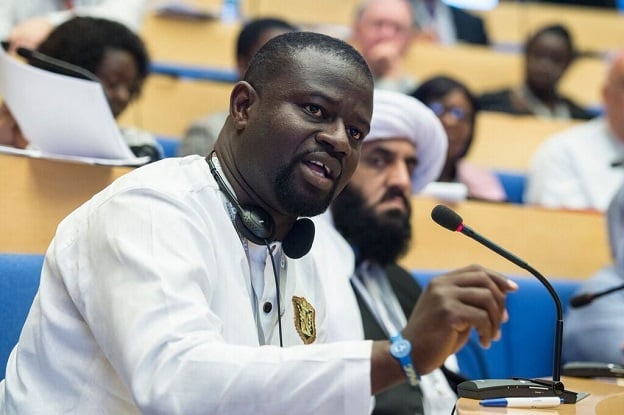“From Firebrand to Flashpoint: Can Frank Annoh-Dompreh Reclaim His Legacy?”
After years of controversy, the Nsawam-Adoagyiri MP says he regrets his aggression—but is it too late to rebuild public trust amid a trail of courtroom clashes, inflammatory outbursts, and political turbulence?
In Ghana’s evolving democracy, leadership is not merely a title—it is a test of character. For Hon. Frank Annoh-Dompreh, MP for Nsawam-Adoagyiri and Minority Chief Whip, that test has been marked by turbulence, controversy, and now, a public confession: “One of my regrets is presenting myself as someone aggressive.” But for many Ghanaians, this admission is not a revelation—it is a reflection of a pattern long observed and deeply troubling.
A Catalogue of Controversy
Annoh-Dompreh’s political career has been punctuated by a series of misdemeanours that have raised serious questions about his temperament and fitness for high office. In Parliament, he has been at the center of multiple altercations, including a heated confrontation during a vetting session in January 2025 that led to his suspension by Speaker Alban Bagbin for two weeks. His conduct during that session was described as chaotic and unbecoming of a senior legislator.
Outside Parliament, the controversies deepen. In July 2024, he was convicted of contempt by the High Court in Accra for obstructing court bailiffs and police officers during a lawful land execution. Though spared a custodial sentence, he was fined GH¢7,200—a stark reminder that no one is above the law.
In February 2025, he ignited national outrage with remarks that many interpreted as inciting violence. Addressing party supporters in Ablekuma North, he urged them to retaliate against political opponents, stating: “If you are an NPP member and you see fellow NPP members fighting NDC supporters, help your colleague NPP member beat up the NDC supporter.” The comments drew condemnation from civil society groups and media figures alike.
Further allegations include evading a court bailiff attempting to serve him with an injunction, and being implicated in a shooting incident during election result collation at St. Martins SHS—an event that left an observer hospitalized. Environmental groups have also accused him of complicity in illegal mining activities, citing his own admissions and the environmental degradation in his constituency.
The Weight of Leadership
As Chinua Achebe warned, “The trouble with Nigeria is simply and squarely a failure of leadership.” Ghana must heed that caution. Leadership is not about theatrics or threats—it is about integrity, restraint, and service. When a public servant repeatedly undermines the very institutions he is sworn to uphold, regret becomes hollow without reform.
A.B.A. Fuseini once said, “A man floored in the market square by a pregnant woman has no reputation to protect.” That proverb now echoes through the corridors of Parliament, where Annoh-Dompreh’s credibility has taken a bruising.
The Bible reminds us: “Let not many of you become teachers, knowing that we shall receive a stricter judgment” (James 3:1). And globally, Dwight Eisenhower’s words ring true: “The supreme quality of leadership is integrity.”
A Path Forward—If He Chooses to Walk It
Regret is not redemption. If Hon. Annoh-Dompreh truly seeks to restore public trust, he must go beyond words. He must embark on a national listening tour, face his constituents with humility, and demonstrate a renewed commitment to democratic values. He must renounce inflammatory rhetoric and embrace the quiet strength of service.
As Achebe also wrote, “When a madman walks naked, it is his kinsmen who feel shame, not himself.” The shame of poor leadership is not his alone—it stains the nation.
Ghanaians are not unforgiving. But they are watching. And they deserve better.
Retired Senior Citizen
Teshie-Nungua
[email protected]


